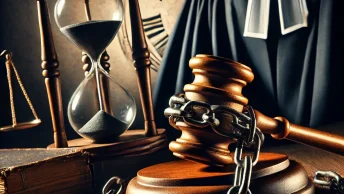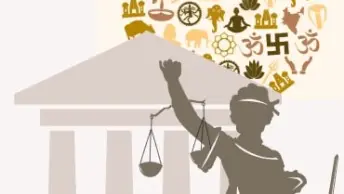The following cases were heard at length in the Supreme Court this week. This is a select review of what I consider as important.
1. Kunga Nima Lepcha vs. State of Sikkim: W.P.(C)353 of 2006: Heard by Chief Justice and Justices Sathasivam and Panchal. Arguments have concluded and judgment reserved. Here is the latest order. The facts of the case may be gathered from here.
2. Shanti Bhushan vs. Union of India:: (W.P.(c)375 of 2007). The petition challenges the Central Government’s policy of confirming Additional Judges as Permanent Judges without the recommendation of the collegium, as laid down in the Advocates on Record case. Heard by Justices Arijit Pasayat and Mukundakam Sharma. Arguments have concluded and judgment reserved. Here is the latest order. Anil Divan argued for the petitioner. He submitted that when the appointment process starts for a Permanent Judge, consultation must be with the existing functionaries of the collegium. He suggested that an Additional Judge might have been appointed on the basis of consultation within the collegium, but when the same Judge is being considered for appointment as a Permanent Judge, a fresh consultation with the existing collegium is mandatory. He recalled the experience of supersession of the CJIs in the early 1970s, and said strict adherence to the 1993 judgment as clarified in the 1998 Reference case, was imperative to safeguard the independence of the judiciary.
Gopal Subramanian, ASG, on the contrary, argued that there was no explicit direction to consult the collegium when an Additional Judge is being considered for the post of a Permanent Judge. He suggested that portions of S.P.Gupta Judgment of 1980 are still valid law. According to S.P.Gupta judgment, any additional Judge is not qualitatively different from a Permanent Judge. The moment an Additional Judge is appointed under Article 224 (1), it is proceeded on the basis that he will be appointed as Permanent Judge,he said. Therefore, at the stage of confirmation, no further consultation is necessary, he suggested. There can be no evaluation of quality of work of an Additional Judge, except that his credentials are consistent with the Permanent Judge, he contended. For Anil Divan, however, de novo consultation is necessary because the Additional Judge, during his tenure of two years, may have developed unsavoury links, and therefore, consultation would facilitate plurality of opinions, and avoid the arbitrariness of sole opinion being the basis of a decision.
3. MCOCA case: The constitutionality of Maharashtra Control of Organised Crime Act is being challenged in this case on the ground that it stood impliedly repealed because of the Central Government’s repeal of POTA in 2004. The latest order in the case is here. The hearing is to resume on November 10. The thrust of Harish Salve’s arguments on behalf of Maharashtra Government is that modern state needs multiple weapons in their armoury, as terrorism is a hydro-headed monster, and that there is bound to be overlapping. “You have to prove multifarious ingredients”,he told the Bench. Arguing that waging war (S.121 IPC) is also an act of terrorism, he suggested that logically S.121 should stand repealed, if there is a separate law on terror. A terrorist can also be charged with the offence of culpable homicide(S.301 IPC), but the provision dealing with terrorism and S.301 don’t mutually repeal, he argued. “Terrorist acts are acts meant to overawe, and therefore the distinction between terrorism and waging war is thin; these are overlapping, blurred and that is the nature of the animal – you throw in all directions in order to rein in”, he said.
UPDATE: Arguments have concluded. The latest order is here.
4. Archbiship Raphael Cheenath v. State of Orissa: The order passed in this case following a lengthy submission by the Petitioner’s counsel, Colin Gonsalves seeking a CBI inquiry into the alleged rape of a nun in Orissa raises the question whether the Court could have directed a CBI inquiry considering the special circumstances of the case wherein the role of the State police has been questioned. Orissa’s counsel, K.K.Venugopal mentioned that the victim did not allege the presence of police in her statement under S.161 Cr.P.C. Colin replied that 161 statement was filed by the same policemen who were present. Colin’s plea was that it is a conspiracy of larger nature, and only a Central agency can investigate which organisation is responsible for the spread of the hatred.
Colin: Principal wrong-doers must be identified. There are similar incidents in Karnataka. We need to know whether these are connected. Are outsiders involved?
CJI: It is a free country, how can we restrict someone from entering a State?
Colin: Everybody knows who are the principal wrong-doers. It is a question of political will.
CJI: It is easy to say. It is a question of social harmony. It can’t be achieved by arresting people.
Colin: Law should be taken to logical conclusion.
Following the rejection of the petition, the nun had to go public with her allegation.
5. Union of India v. Ramesh Ram. For the background to this case, please read my earlier post here.. The latest order in this SLP, after the hearing on October 14 is here.
The UOI’s reply affidavit in this case is interesting. It says: “The normal policy of the reservation stipulates that the reserved category candidates, do have right to compete for unreserved seats but its application to the situation of the combined examination requires modification to ensure fairness and balance between merit and social justice. This modification was therefore, effected with effect from Civil Services Examination, 2002. This ensured that problem of reserved category candidates going unallocated would not arise. Rule 16(2) was framed to ensure and subserve and further advance the very principle of reservation in view of reserved category candidates to get a service of higher choice in the order of their preference. This is to ensure that reserved category candidate selected on merit is not put to a disadvantage vis-a-vis other candidates of his category of his category who have qualified on relaxed standards and are lower in rank.” The respondents in this case challenge Rule 16(2)because it deprives the opportunity of the reserved candidates who got selected with relaxed standards to avail the quota benefits. It would appear that the general candidates must be happy with Rule 16(2) because the number of reserved candidates getting selected would ultimately be less, because they would be confined to the quota, and the unreserved candidates getting selected would be entirely general. The judgment, which has been reserved, will hopefully reconcile these two equally convincing contentions.





